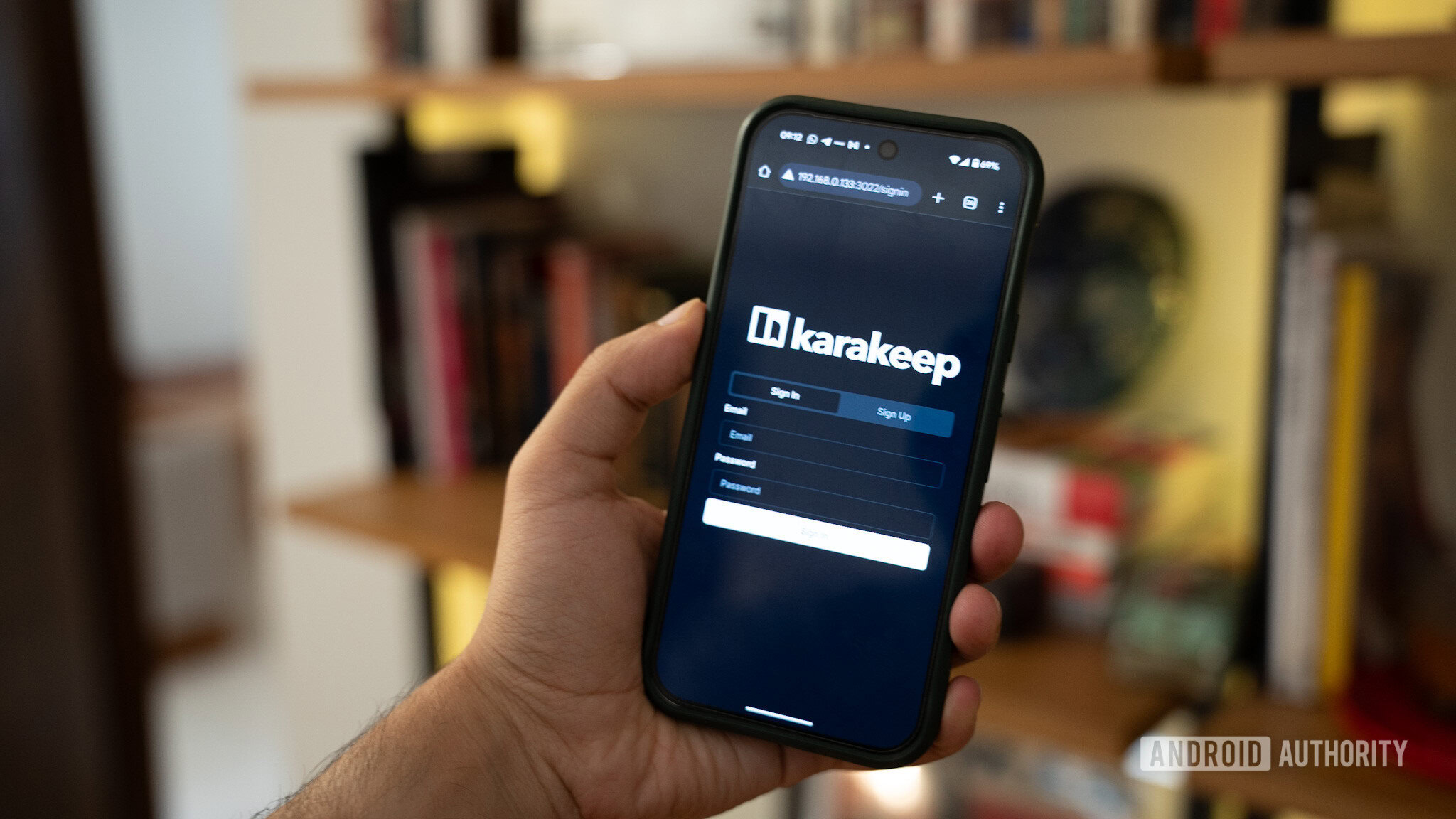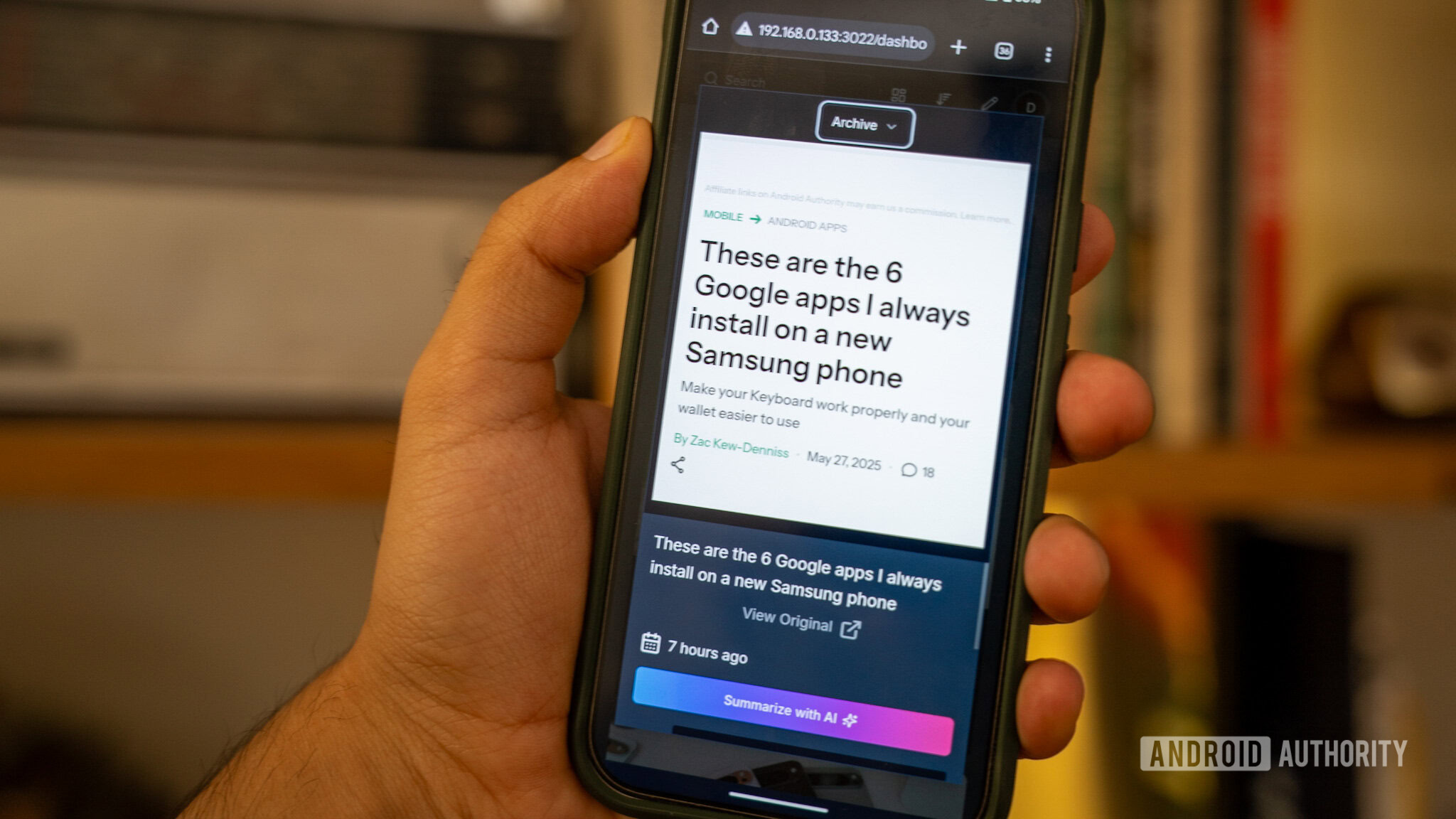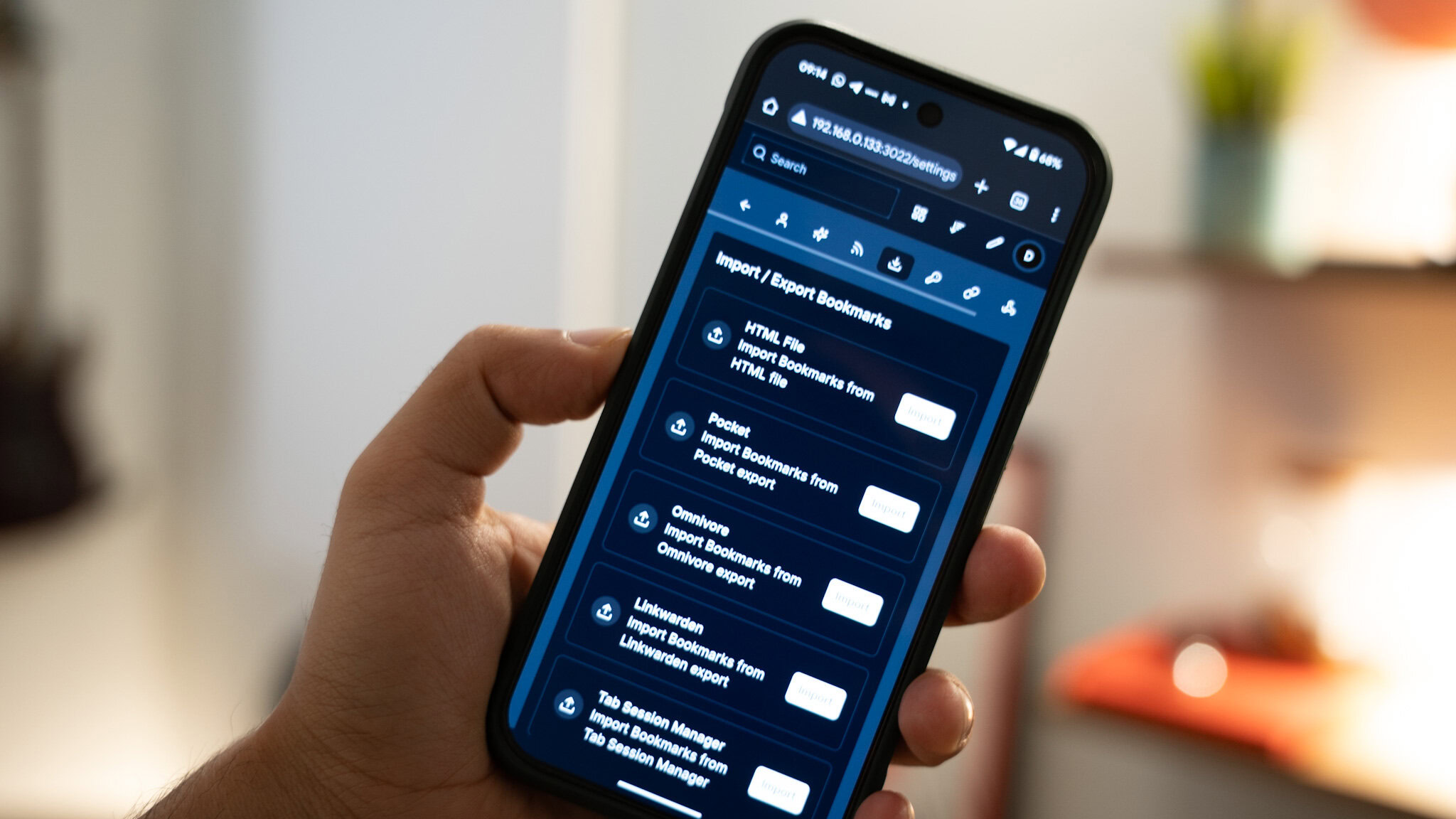
Dhu Bhutani / Android Authority
I’ve used a pocket every day for more than a decade. From quick hit to long-term storage, well, my own articles, interviews, and hundreds of exciting Langads didn’t have time at that moment-everything went into my pocket. Over time, it became my cross -platform inbox for the web. I will save articles on my phone while traveling, then dive them on my laptop later. See something interesting, save, save, move on. Even I developed a tagging system, used to collect research, written ideas, weekends, and other bits that I wanted to return.
Later, when I had time and mental space, I would go back to my queue and sometimes on the eBook reader, but recently, most often on bullets or foldable phones. It became an integral part of how I ate the web that pocket was always one of the first extension in Chrome that I install on a new laptop or browser.
The pocket was so deeply embedded in my daily routine, I didn’t realize how much I rely on it – until it was too late.
So when Mozilla announced that she was being killed by pocket, it was not angry, it was frustrated. I would not show that I didn’t see him coming. Mozila had been silent about the pocket for a while, and her shift was towards the contents of AI, as she later felt like a soft axis away from the original idea of saving and reading. Still, I was out of the convenience, out of the habit, and because he just worked. Pocket was the utility that I still didn’t need to think about.
I got Priorities change. Products are manufactured. Companies are axes towards things that appear to be shiny or expanded. But the pocket was very deeply embedded in my daily routine so that it could be allowed to go without finding an alternative alternative. At the same time I started looking for alternatives. As someone who is slowly moving towards the host tools to avoid a short life of commercial services, my first instability was to look for an open source option. There is no other start with a roadmap through subscription model and market trends, but something that I can really own. Something that will not disappear suddenly. And found me the same KARAKEEP.
Carcap, and why does it work

Dhu Bhutani / Android Authority
I first returned to Kirkp when it was still called Hoorder. It was complex and unstable, so I saved it. But when Mozilla announced the closure of the pocket, I reviewed it – and I got dramatically improved, thoughtfully with the pocket clone, minus flip and some smart additions.
The basic idea is simple. Save links, save full pages, and read them later. Kerkep saves a clean reader’s view as well as a screenshot for context. Tagging support, search, and no algorithm is trying to estimate what I should read ahead. He did not ask for my interests, nor did things “based on your activity”. It only saves something I tell him, then turns out.
It was straightforward to install it. The Crakep uses the dock, and it is easy to follow the gut hub -related instructions. Within an hour I was walking on my synology NAS on a dock container. There is also a browser extension, which makes the pocket flow exactly imitated. See something, click Save. Just Articles appear immediately, formatted with a clean, readable sequence. Mobile apps are also available, and when they are not like a pocket, they work a lot. Offline readings are still missing, which may be a contract for some people, but this has not yet been a major problem for me. In addition, it is on the road map.
What I was surprised was how much a carcip builds with a deliberate addition to the heritage of the pocket. One of my favorite features is an optional RSS integration. Its purpose is not to change your RSS reader, but you can use it in auto -sau posts from specific feeds. It does a great job for niche blogs or subsidized feeds that can be lost in your inbox. However, your protected documents will quickly be out of control.
Optional AI-integration article facilitates tasks such as Samsarization and Automatic tagging.
Another clean addition is AI -powered tagging and summary. If you bring it to the open API key, the Crakep can auto tag and even create a brief summary of each article. I personally prefer to do it manually because I enjoy the process of tagging and corting my own protected documents, but when I am in Rush or Bulk I am in orchio, it’s a good fallback.
Like most open source projects, carcap is not perfect. Occasionally, it struggles with the Edge case sequence or fails to remove some elements. Some dynamic web pages travel to it. But unlike the pocket, when something is broken here, I can rotate and really understand what’s happening. I can fix it or at least file a problem and see what is being done. I am not stuck in a product refreshing or ambiguous support response. This transparency and control make a difference.

Dhu Bhutani / Android Authority
What I did not expect was how this change in crack would change my reading style. For the first time in a while, I’m re -preparing my row, not just throwing links in a black hole. I’m tagging more deliberately. I’m reading more slowly. I am more careful because I know the content is kept, not disappearing when one decides that it is no longer able to maintain it. The full experience feels less transactions and more deliberate.
Crackup can keep a full offline of the webpage to protect from dead links.
It has also turned into a great tool for light research. I will save blog posts, technical documents, newsletter threads, what I know I will need later. And since the crack stores a complete snapshot, I don’t care about dead links. During long written plans it was amazingly helpful, where I would need to draw an excerpt or refer to something that has changed only after I get the first time.
Are looking forward to

Dhu Bhutani / Android Authority
Losing the pocket felt like an era of era. Not because it was irreparable, but because it quietly became part of my digital habits as if it was a hold -over from an old, quiet internet. One who was not trying to predict or earn money. One where bookmarking something means that I will come back to him, it is not that it will disappear under the algorithmic feed. Pocket represented a kind of intention that is rare in today’s economy.
But in a way, the passing of pockets also forced me to review when they rely on services when I don’t control. Crakep is continuing this legacy this time with full property. It’s not shiny, but it is stable, capable and self -hosting. Although the basic experience is still about tagging and saving articles, notes, or photos, I like the developers open the door to enhance you. Want AI’s features? It depends on you. Simple and minimal prefer? That’s fine too. If you are staring at your pocket archive and wondering what is next, Crakep is a solid option. Need a little effort to go – but the payment is worth it. You don’t get a pocket alternative. You get a reminder that the tools you rely on every day do not need to be disposed of.

